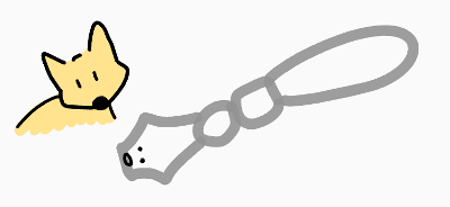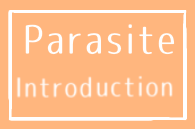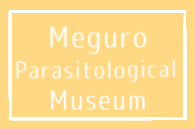Echinococcus

Illustration of Echinococcus
Main symptoms
Subjective symptoms do not appear immediately after infection, and discomfort and bloating in the upper abdomen appear after an incubation period of several to ten years.
In monocystic echinococcosis, isolated cysts grow slowly, causing hepatomegaly, abdominal pain, and compression of surrounding organs, leading to biliary obstruction, cholangitis, or rupture.
In alveolar echinococcosis, about 98% form primary foci in the liver. Hepatomegaly, abdominal pain, etc. appear when microcysts engrafted in the liver form continuous masses due to exogenous sprouting.As it progresses further, it invades other organs such as the biliary tract and blood vessels, causing obstructive jaundice, central necrosis of lesions, and local infection, which can become severe.At the end of the disease, ascites and edema of the lower extremities appear.
Prevention method
Do not touch wild dogs or wild animals unnecessarily. Also, if you touch it, wash your hands well.
Do not let your dog pick-up-and-eat habit. Also, don't let pasturage.
Do not drink raw water from streams or rivers.
And so on.Let's be conscious of these and lower the risk of infection even a little.


(source:https://www.niid.go.jp/niid/ja/diseases/na/norovirus/392-encyclopedia/338-echinococcus-intro.html、https://www.town.taketoyo.lg.jp/contents_detail.php?co=new&frmId=1891、https://www.city.asahikawa.hokkaido.jp/kurashi/135/136/150/p004148.html)



Illustration of Echinococcus
Characteristics of Echinococcus
Echinococcus is a disease caused by larvae of the genus Echinococcus.The cysts grow in organs such as the brain and liver, causing symptoms.
It is caused by ingesting water, food, dust, etc. contaminated with insect eggs excreted by adult-infected foxes, dogs, etc.
Echinococcus is a disease caused by larvae of the genus Echinococcus.The cysts grow in organs such as the brain and liver, causing symptoms.
It is caused by ingesting water, food, dust, etc. contaminated with insect eggs excreted by adult-infected foxes, dogs, etc.
Main symptoms
Subjective symptoms do not appear immediately after infection, and discomfort and bloating in the upper abdomen appear after an incubation period of several to ten years.
In monocystic echinococcosis, isolated cysts grow slowly, causing hepatomegaly, abdominal pain, and compression of surrounding organs, leading to biliary obstruction, cholangitis, or rupture.
In alveolar echinococcosis, about 98% form primary foci in the liver. Hepatomegaly, abdominal pain, etc. appear when microcysts engrafted in the liver form continuous masses due to exogenous sprouting.As it progresses further, it invades other organs such as the biliary tract and blood vessels, causing obstructive jaundice, central necrosis of lesions, and local infection, which can become severe.At the end of the disease, ascites and edema of the lower extremities appear.
Prevention method
Do not touch wild dogs or wild animals unnecessarily. Also, if you touch it, wash your hands well.
Do not let your dog pick-up-and-eat habit. Also, don't let pasturage.
Do not drink raw water from streams or rivers.
And so on.Let's be conscious of these and lower the risk of infection even a little.

Now I know why you can't touch wild dogs...

No matter how cute dog is, be careful to protect yourself.
(source:https://www.niid.go.jp/niid/ja/diseases/na/norovirus/392-encyclopedia/338-echinococcus-intro.html、https://www.town.taketoyo.lg.jp/contents_detail.php?co=new&frmId=1891、https://www.city.asahikawa.hokkaido.jp/kurashi/135/136/150/p004148.html)


Activity log
2022.06.07 We formed a team.
2022.07.23 We started homepage making.
2022.08.28 We went to Meguro parasite building.
2022.10.21 We are selected as a representative of the school.
2022.12.20 We are selected semi finalist.
2022.12.31 We created a Twitter account for this site.
en.png)








